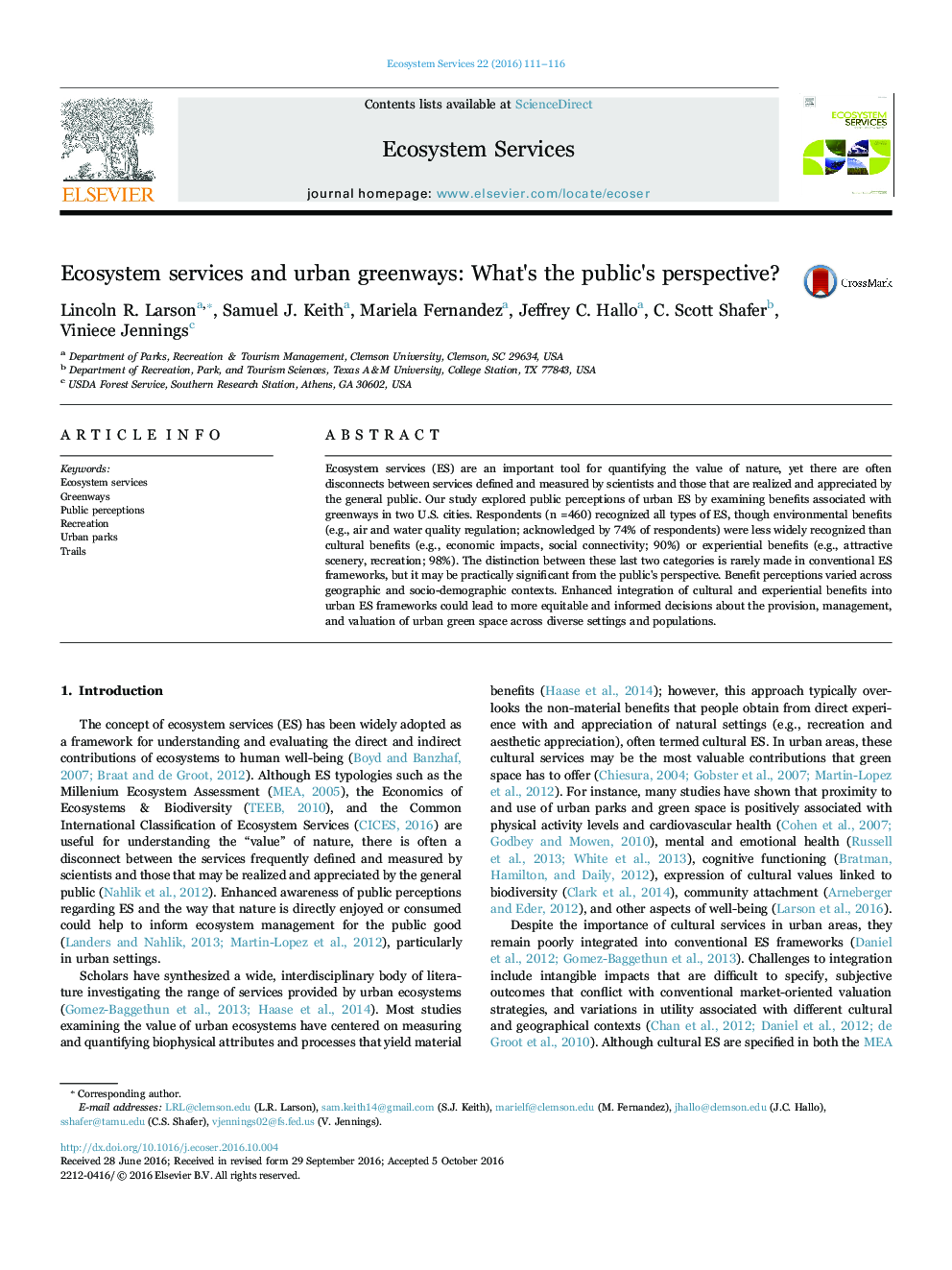| Article ID | Journal | Published Year | Pages | File Type |
|---|---|---|---|---|
| 4761644 | Ecosystem Services | 2016 | 6 Pages |
Abstract
Ecosystem services (ES) are an important tool for quantifying the value of nature, yet there are often disconnects between services defined and measured by scientists and those that are realized and appreciated by the general public. Our study explored public perceptions of urban ES by examining benefits associated with greenways in two U.S. cities. Respondents (n =460) recognized all types of ES, though environmental benefits (e.g., air and water quality regulation; acknowledged by 74% of respondents) were less widely recognized than cultural benefits (e.g., economic impacts, social connectivity; 90%) or experiential benefits (e.g., attractive scenery, recreation; 98%). The distinction between these last two categories is rarely made in conventional ES frameworks, but it may be practically significant from the public's perspective. Benefit perceptions varied across geographic and socio-demographic contexts. Enhanced integration of cultural and experiential benefits into urban ES frameworks could lead to more equitable and informed decisions about the provision, management, and valuation of urban green space across diverse settings and populations.
Related Topics
Life Sciences
Agricultural and Biological Sciences
Agricultural and Biological Sciences (General)
Authors
Lincoln R. Larson, Samuel J. Keith, Mariela Fernandez, Jeffrey C. Hallo, C. Scott Shafer, Viniece Jennings,
